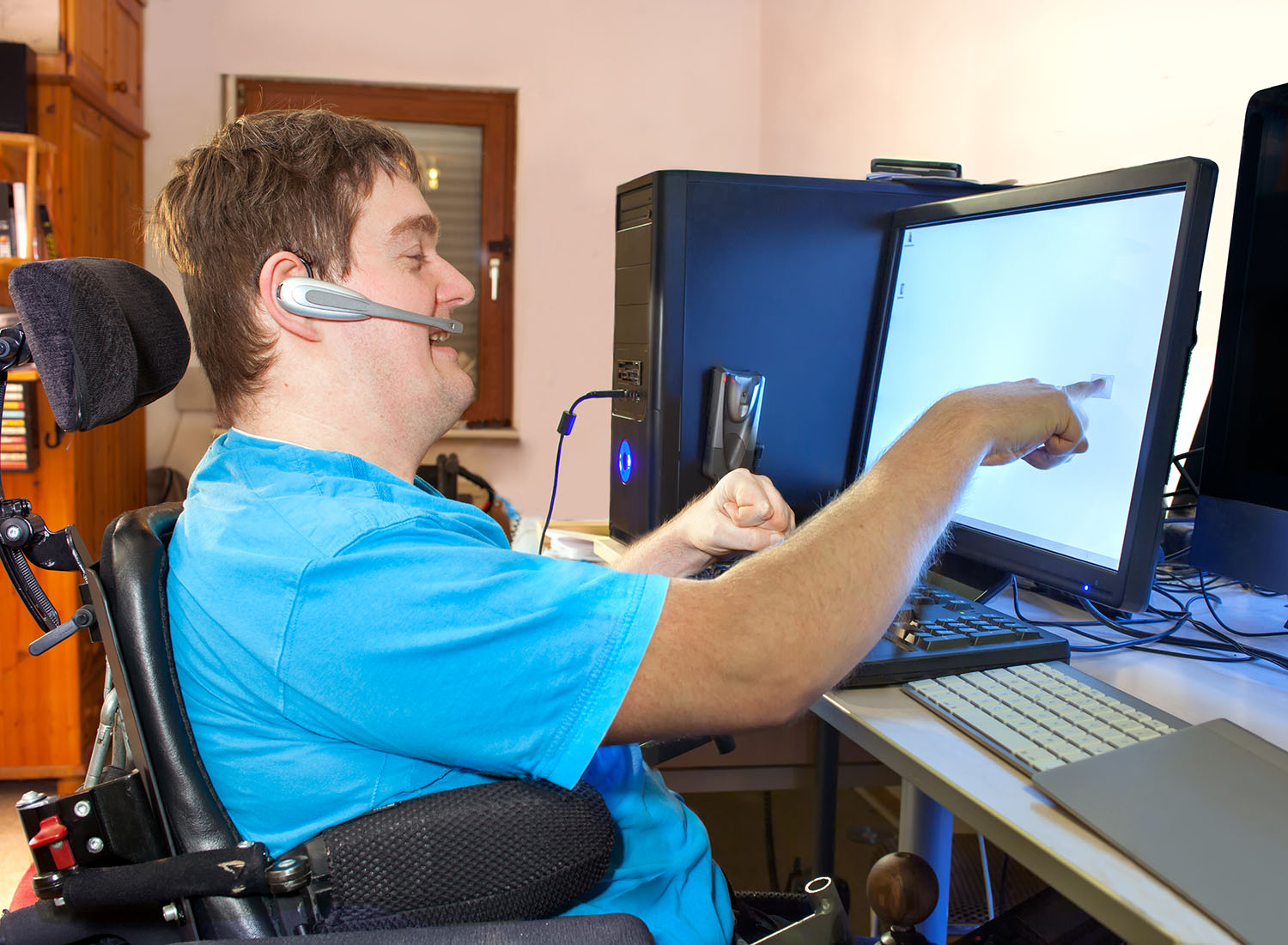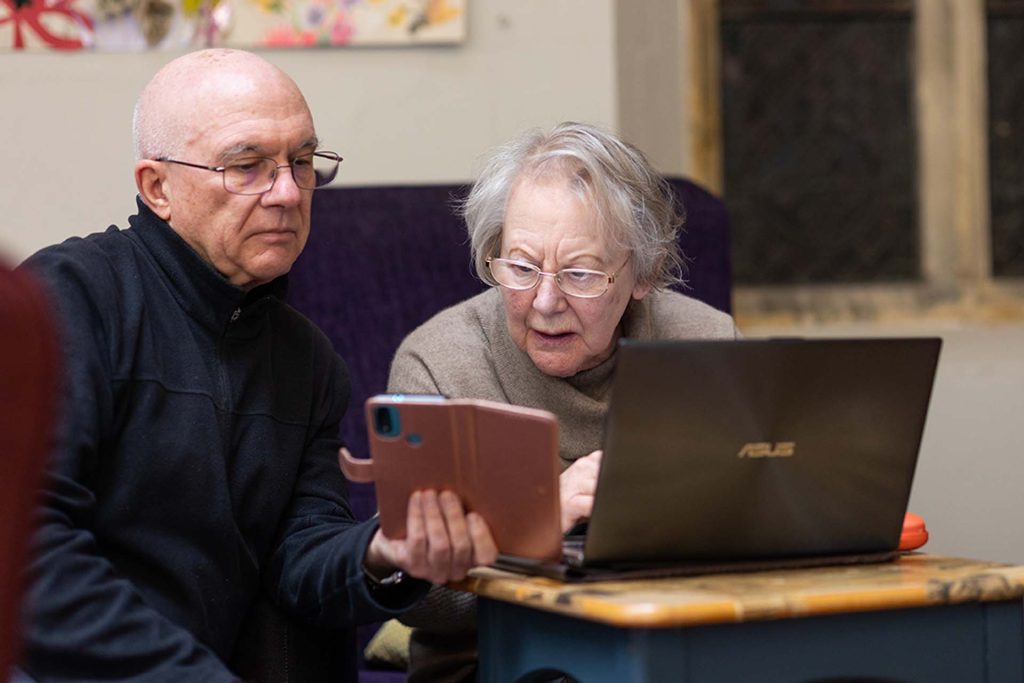
Digital Care: roles, risks, realities and rewards
Exploring how digital technology, care and caring relationships intersect and interact.
Technology has long been a part of caring arrangements and networks, facilitating the organisation of support, connections between people and services, and helping with some key tasks. Technology is changing fast, as devices and systems advance at a rapid rate, and previously dominant ‘telecare’ and ‘technology enabled care services’ models (often using analogue telephone lines) are being redesigned in response to the ‘digital switchover’.
New developments include growing deployment of artificial intelligence, robotics and ‘internet of things’ devices in care. These changes have implications for how care and support are experienced and provided.
Our research asks:
- What digital technologies are being used in care. How and why is this happening?
- Do these developments bring new opportunities, barriers, benefits and risks?
- Do digital technologies support wellbeing outcomes in care – and if so, for whom, and in what circumstances?
- What are the social justice and equality implications of these developments? Who benefits? Who is exposed to risk?
- How does digital technology affect care relationships, the paid work of care and employment dynamics?
- How do users of digital devices configure or ‘tinker’ with these technologies to produce outcomes that matter to them?
To answer these questions, we have so far carried out research about the care workforce, the wider care ecosystem and individuals who use care services and their family members.
The latter is a project ‘Technologies that matter – Care, technology and living a good life’, focussed on what people use to live full lives and co-produced with Think Local, Act Personal (TLAP). We have been working with a group of people from TLAP who have lived experience of care and support since April 2023.
After designing the project together, we started fieldwork in May 2024, and began working with our co-production team on the analysis in March 2025 – with co-produced outputs coming later in the year.
You can read more about our approach to co-production in a commentary here, and the creation of the ‘Mind the Gap: Tackling digital exclusion’ board game here.
Commentary and updates on Digital Care
Pieces relating to Digital Care: roles, risks, realities and rewards

The Centre for Care team respond to last week’s 2025 UK government Spending Review.
Read More about Left on the Back-Burner: Adult Social Care and the 2025 Spending Review
Join us in Sheffield for the launch of our digital exclusion boardgame and panel discussion at lunchtime on Monday 4th November!
Read More about Mind the Gap: Tackling digital exclusion (event)
Event recording now available.
Read More about Navigating Transnational Aged Care: The Role of WhatsApp in Zimbabwean Migrant Families
This presentation by Dr Obert Tawodzera sheds light on the pivotal role of WhatsApp family groups in facilitating transnational aged care.
We are delighted to release the recording of our live podcast event, held at the University of Sheffield as part of the Economic and Social Research Council’s Festival of Social Sciences.
Read More about CARE MATTERS Podcast live episode: AI, Sensors & Robots: what is next for Social Care in the UK?
Recent Publications
A selection of recent publications from the Digital Care: roles, risks, realities and rewards team.
Members
The Digital Care: roles, risks, realities and rewards team is led by Professor Kate Hamblin at the University of Sheffield.
Projects linked to Digital Care
In addition to projects funded by the ESRC and NIHR through the Centre for Care, members of the Digital Care theme have collaborated on several projects related to digital exclusion supported by the Crook Public Service Fellowship and Research England Higher Education Innovation Funding.
Digital exclusion and unpaid carers in South Yorkshire
With Crook Public Service Fellowships and the ESRC funding and in collaboration with Centre for Care Associates Dr Efpraxia Zamani (Business School, Durham University), Dr Laura Sbaffi (Information School, University of Sheffield), Dr Rachael Black (Knowledge Exchange Lead, University of Sheffield), Prof Kate Hamblin (Centre for Care and CIRCLE, University of Sheffield) examined the experience of digital exclusion by unpaid carers in the South Yorkshire region: https://centreforcare.ac.uk/publications/digital-exclusion-report-2023/
Digital Poverty in South Yorkshire
With Research England funding, Dr Efpraxia Zamani (Durham University Business School) and Dr Sara Vannini (Information School, University of Sheffield) developed an online heatmap of the South Yorkshire region that helps identify and analyse pockets of digital poverty. The Centre of Care supported the expansion and updating of this online tool with data pertaining to unpaid care.
https://sheffield-university.shinyapps.io/Digital-Poverty
Digitalisation of Social Care and the Implications for Older Unpaid Carers
This project was a knowledge-exchange collaboration between the Universities of Sheffield and Durham, Carers UK and the Good Things Foundation, funded by HEIF, with the objective to identify the implications of the digitalisation of care for unpaid carers. Summary policy reports have been produced by Dr Anastasia Rousaki (IMPACT, University of Sheffield), Dr Laura Sbaffi (Information School, University of Sheffield), Dr Efpraxia Zamani (Durham University Business School), Prof Kate Hamblin (Centre for Care and CIRCLE, University of Sheffield) and Dr Rachael Black (Knowledge Exchange Lead, University of Sheffield).
Click here to read summary of findings

